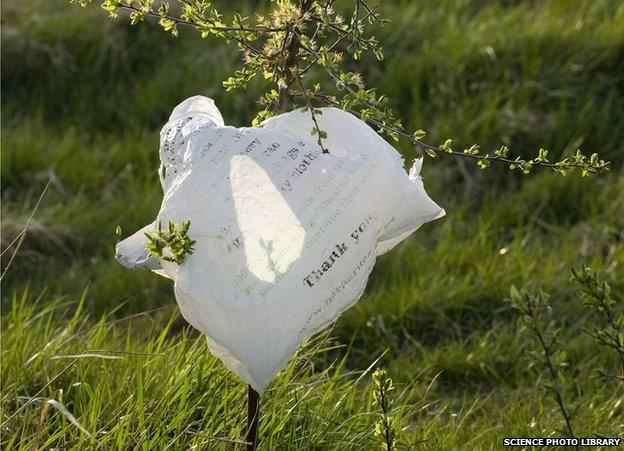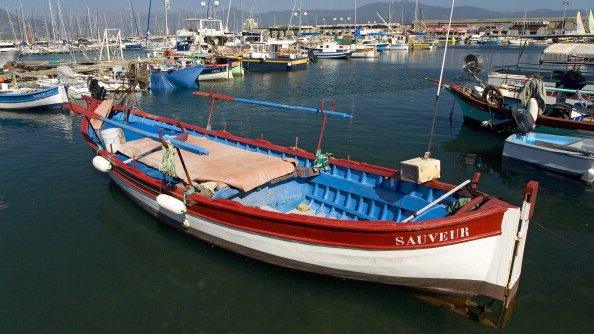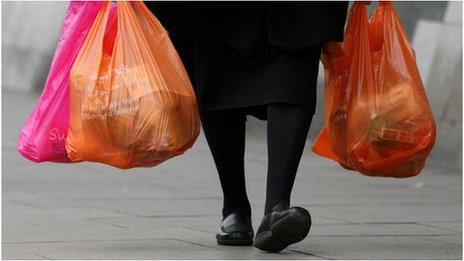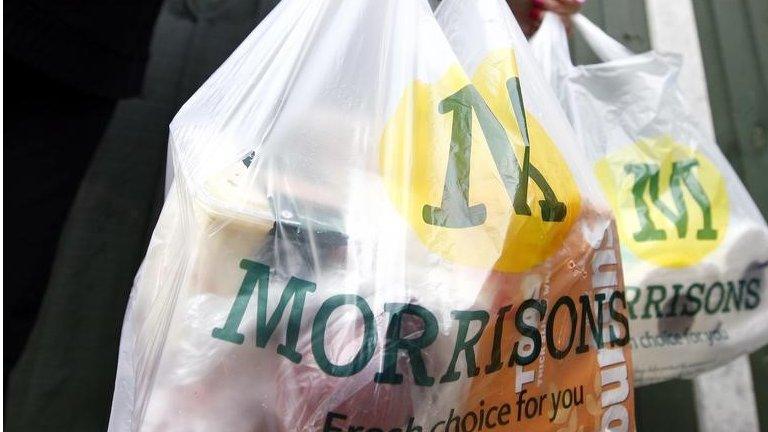EU to curb thinnest plastic bags in anti-pollution push
- Published

Plastic bag litter is one of Europe's major pollution problems
The European Parliament has voted to limit the use of plastic bags in Europe, in a drive to curb pollution.
The vote has been hailed as an important environmental step. But critics say the targets should not be mandatory and countries should be allowed to take their own measures.
The law applies to lightweight plastic bags thinner than 0.05mm - the most commonly used in the EU.
Such bags are less reusable and often pollute seas and rivers.
In the future, EU countries will have two ways to implement the agreement:
Either to reduce annual average consumption to 90 lightweight bags per citizen by the end of 2019, and 40 by the end of 2025
or to ensure that no more light plastic bags are handed out free of charge to shoppers by 2018
'Billions of bags'
A Danish MEP, Margrete Auken, steered the legislation through parliament and said it was a major step for the environment.
"We are talking about an immense environmental problem, with hundreds of billions of plastic bags being used every year.
"We will make sure that action is taken," she said. "The [European] Commission says countries should do these things themselves, but they are not doing them themselves! This is a genuine win-win situation."
But the Irish MEP Luke Flanagan from the European United Left political group disagreed.
"I agree with the concept of introducing taxes to reduce the consumption of plastic bags. It has been introduced in Ireland to great effect.
"However, the other side of the argument has to be looked at: what has it driven us to use? More paper bags, rather than... reusable bags.
"If you force member states to do something, they won't do it right, you do something because you want to do it! Leave it up to the member states."
- Published2 April 2015

- Published19 March 2012

- Published17 June 2014
